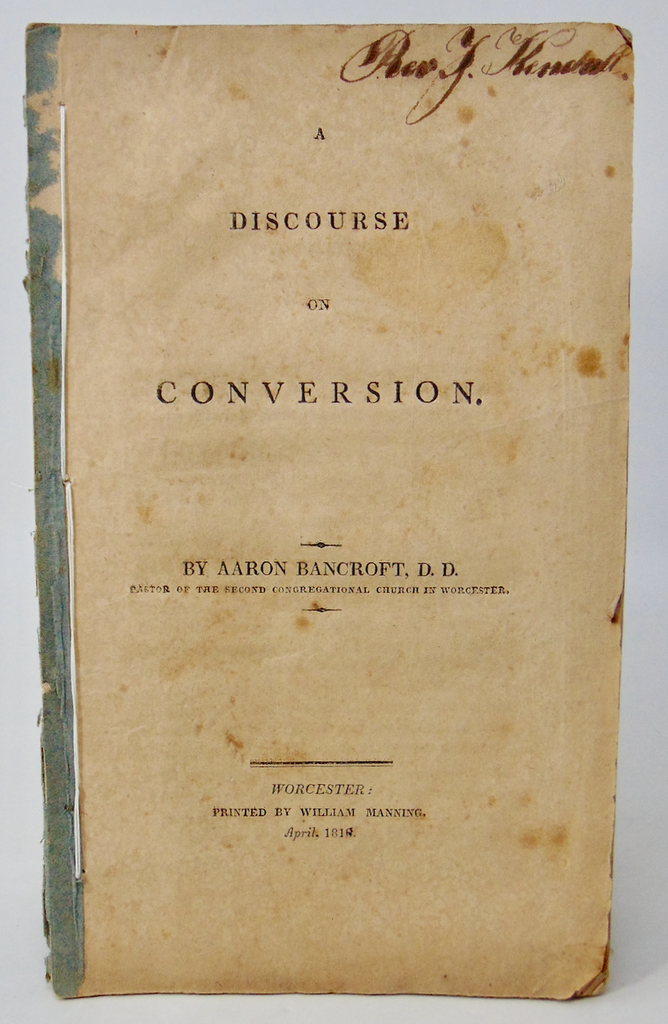
Bancroft, Aaron. A Discourse on Conversion. Worcester: Printed by William Manning. 1818 [10898]
8 1/2 x 5 inches, no wrapper, new binding strings, 40 pages. Good. Pamphlet.
A sermon on the text John 3:3, "Verily, verily I say unto thee, Except a man be born again, he cannot see the kingdom of God."
Our author, we think, confuses "conversion" with repentance, for he speaks not of a regeneration from life to death, but of a change of mind leading to a good character.
"...conversion, or regeneration, in the New Testament means a change of the affections from vicious to virtuous objects, altering the course of one's life, the formation of Christian habits."
This "convert" may never have assurance of salvation, for he might fall from his position into foul sin and be lost; he is on spiritual probation until the end of his life. He says that proselytes to Judaism were baptized, and considered "born again" through that process. He rejects any notion of an instantaneous conversion, and promotes the idea that one is christianized through a slow process of education and personal reform, that a man would not be "happy" in heaven unless he had progressed in morality beforehand.
Aaron Bancroft, D.D. (1755-1839), was born in Reading, Massachusetts. While pursuing his divinity studies during the revolutionary war he served as a minuteman, and was present, at both Lexington and Bunker Hill. After graduating from Harvard in 1778 he taught school for a while, was licensed to preach, and spent three years as a missionary in Nova Scotia. He became the pastor of the Congregational church in Worcestor in 1785 and continued in that office until his death, over 50 years later. As he grew older, his theological views changed, becoming first Arminian, and later, Unitarian. He published sermons in defense of religious liberty and a volume of sermons directed against the doctrine of election (1822). He is best known for his "Life of Washington" published in 1807. One scholar calls him, “…the learned and honored minister…an able preacher, and one of the strongest thinkers in the Unitarian body.” - Cooke.


